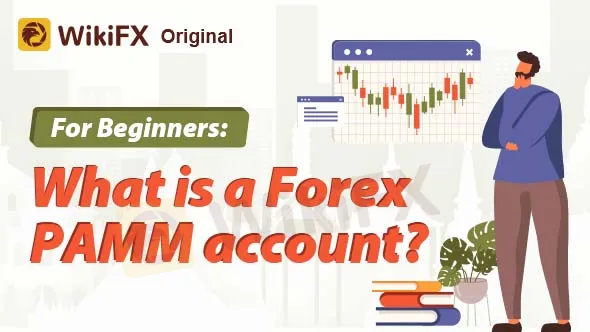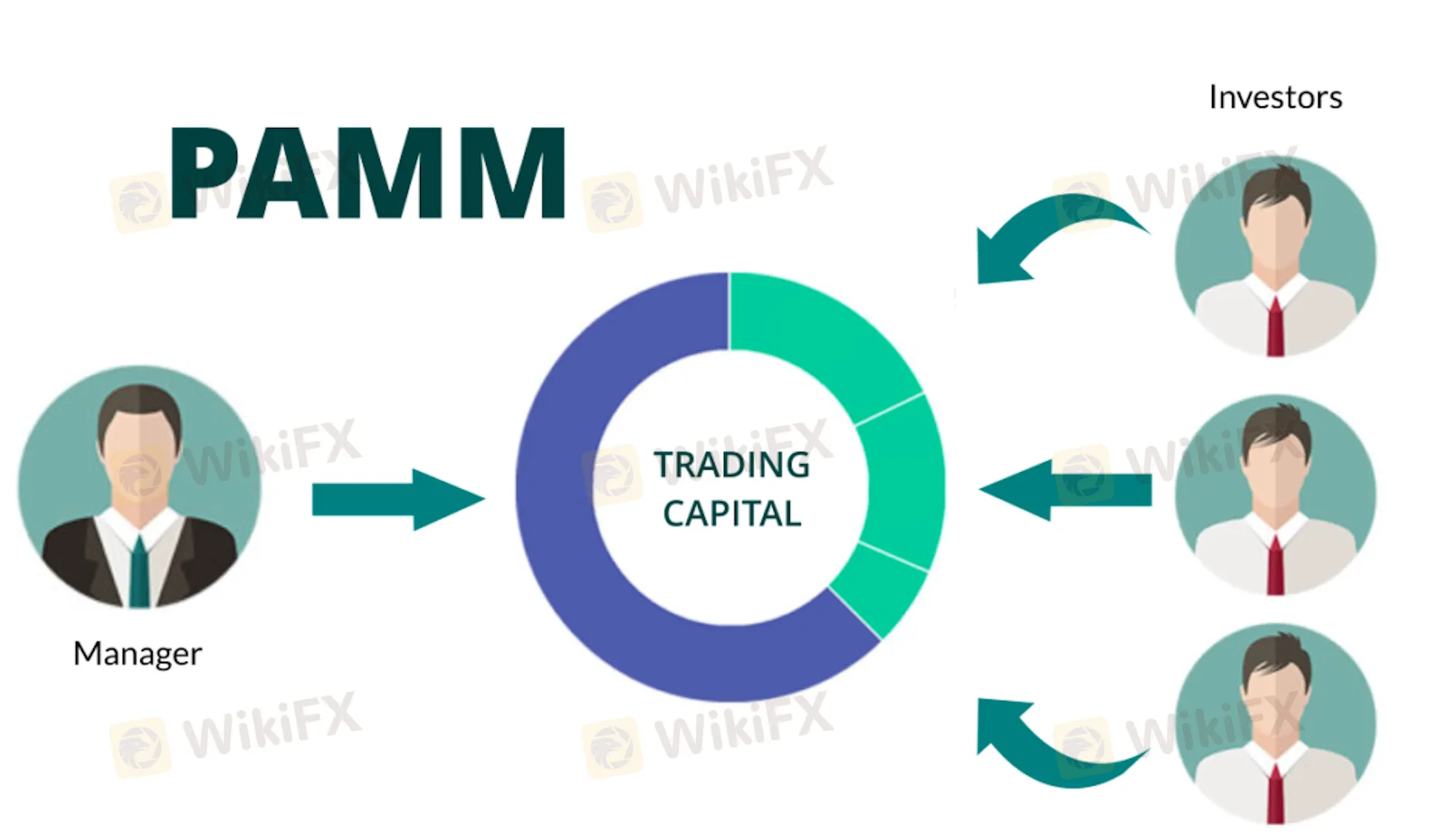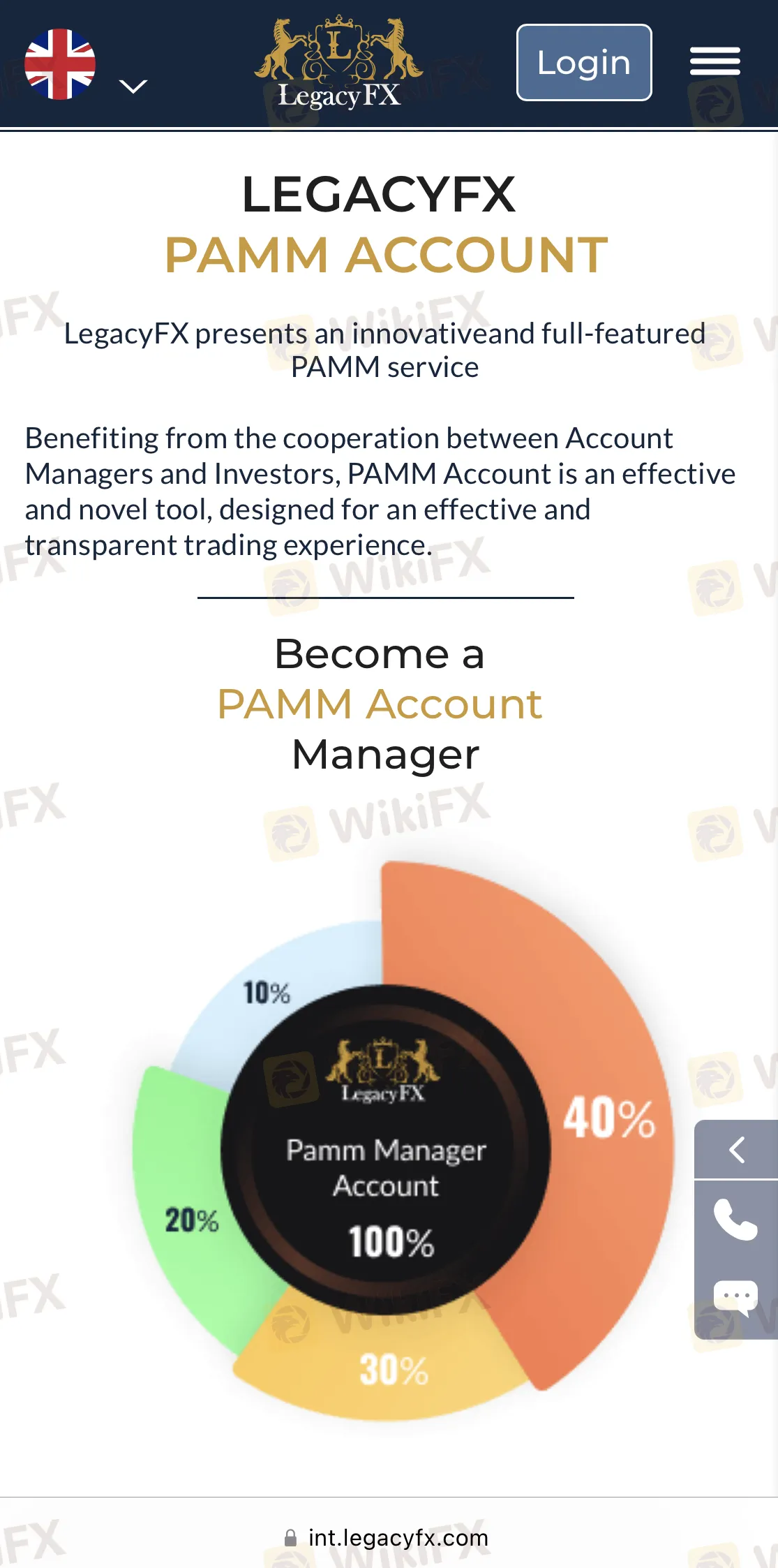简体中文
繁體中文
English
Pусский
日本語
ภาษาไทย
Tiếng Việt
Bahasa Indonesia
Español
हिन्दी
Filippiiniläinen
Français
Deutsch
Português
Türkçe
한국어
العربية
For Beginners: What is a Forex PAMM account?
Abstract:If you pay attention to the official website of these large and medium-sized foreign exchange brokers, you can find that among their products and services, it is not uncommon to find a PAMM account as one of their offers. In this article, we will be talking about the PAMM account in depth.

PAMM is an abbreviation for Percentage Allocation Management Module, which is a percentage distribution management mechanism between investors and money managers. To put it simply, investors and money managers put their money into a pool and they both agree in advance on a mutually beneficial profit distribution method. The percentages of profit distribution may vary depending on various factors, such as the initial capital invested, term of investing, chosen account types, and more. Then, the money managers will be trading those funds actively to generate profits for a monthly or fortnightly profit sharing.
PAMM accounts often involve three main parties:
(1) a forex broker which provides the trading platform
(2) money managers (also known as traders) who would be actively trading the pool of funds
(3) investors that deposit the funds

Supposedly there are three investors, Brandon, Brad, and Tom, who are interested in Forex trading, but they either do not have the time or have little trading expertise to be consistently profitable. One day, they have the chance to meet 2 specialized money managers, Marcus and Mathew, who are actively managing clients' funds along with their own capital and they are trading with ABC Forex Broker. These three investors in question signed a relatively limited power of attorney with Marcus and Matthew. The most important elements of the contract included the investor's handing over of funds to the chosen money manager, allowing such money manager to apply the combined funds following his trading strategies, and ensuring that the relative risk level of the forex trading transactions was clearly understood. The contract also requires the money manager to show the percentage of profit deducted for this service. Then, these 3 investors are also required to open their accounts with ABC Forex Broker to start using the PAMM services.
How does a Forex investor select a PAMM money manager?
Traders can choose a PAMM money manager based on a variety of methods. Usually, the broker that offers this service will present to the investors some information to have a better understanding of a specific money manager, including a detailed biography, credentials, past trading performance, the amount of funds under management, the total number of investors they have worked with, any positive and negative reviews. There are also many outside traders

Investors:
In general, investors can only select forex trading properties presented by the money manager. If the money manager only offers gold trading, investors are unable to make him switch to trading GBP/JPY. Investors risk losing money due to the trading activities of the money manager, but they also profit as long as the chosen money manager can perform optimally.
Money managers:
They can only use the funds that are put in the pool as per agreement with the participating investor. However, they cannot manipulate other funds which belong to the investor's individual trading account. For example, Brandon has $9,000 in his account, but he assigns only $4,000 to Marcus for trading, then the other $5,000 in the account is not available for Marcus' access by any means.
In short, PAMM is a simple one-stop trading service program. Under this type of account, investors can get a profit without investing too much money. However, PAMM accounts also have the risk of losing money, which depends on the trading expertise and strategy of the money manager.
In some cases, there are also fraudulent forex brokers that use PAMM as fake advertising to attract their victims. When the pool of funds gets big enough to feed their greed, they stop or delay clients' withdrawals, and disappear with the funds. This is similar to the collapse of a Ponzi scheme. Therefore, investors must conduct thorough research on the forex broker before engaging in any PAMM services.
To do this, all you need to do is download the free WikiFX app and type the name of the forex broker in question into the search bar. It is important to look at that broker's WikiFX score and benchmark rating, as well as its regulatory status, licenses held, and Exposure pieces.







Disclaimer:
The views in this article only represent the author's personal views, and do not constitute investment advice on this platform. This platform does not guarantee the accuracy, completeness and timeliness of the information in the article, and will not be liable for any loss caused by the use of or reliance on the information in the article.
Read more

The Hidden Checklist: Five Unconventional Steps to Vet Your Broker
Forex broker scams continue to evolve, employing new tactics to appear credible and mislead unsuspecting traders. Identifying these fraudulent schemes requires vigilance and strategies beyond the usual advice. Here are five effective methods to help traders assess the legitimacy of a forex broker and avoid potential pitfalls.

Doo Financial Obtains Licenses in BVI and Cayman Islands
Doo Financial, a subsidiary of Singapore-based Doo Group, has expanded its regulatory footprint by securing new offshore licenses from the British Virgin Islands Financial Services Commission (BVI FSC) and the Cayman Islands Monetary Authority (CIMA).

CFI’s New Initiative Aims to Promote Transparency in Trading
A new programme has been launched by CFI to address the growing need for transparency and awareness in online trading. Named “Trading Transparency+: Empowering Awareness and Clarity in Trading,” the initiative seeks to combat misinformation and equip individuals with resources to evaluate whether trading aligns with their financial goals and circumstances.

Malaysian-Thai Fraud Syndicate Dismantled, Millions in Losses Reported
The Royal Malaysia Police (PDRM) has received 26 reports concerning the Nicshare and CommonApps investment schemes, both linked to a major fraudulent syndicate led by a Malaysian citizen. The syndicate’s activities came to light following the arrest of its leader by Thai authorities on 16 December.
WikiFX Broker
Latest News
Top 10 Trading Indicators Every Forex Trader Should Know
ASIC Sues Binance Australia Derivatives for Misclassifying Retail Clients
WikiFX Review: Is FxPro Reliable?
Malaysian-Thai Fraud Syndicate Dismantled, Millions in Losses Reported
Trading frauds topped the list of scams in India- Report Reveals
AIMS Broker Review
The Hidden Checklist: Five Unconventional Steps to Vet Your Broker
YAMARKETS' Jingle Bells Christmas Offer!
WikiFX Review: Something You Need to Know About Markets4you
Revolut Leads UK Neobanks in the Digital Banking Revolution
Currency Calculator


